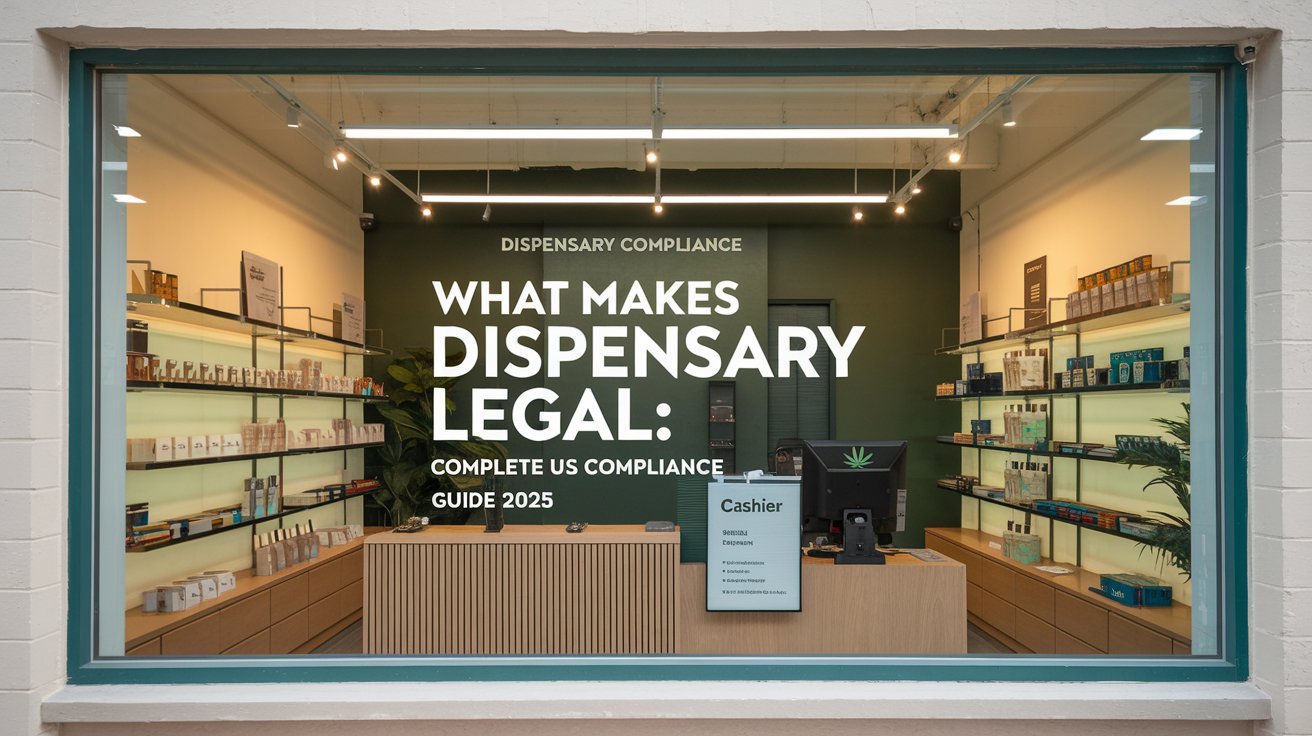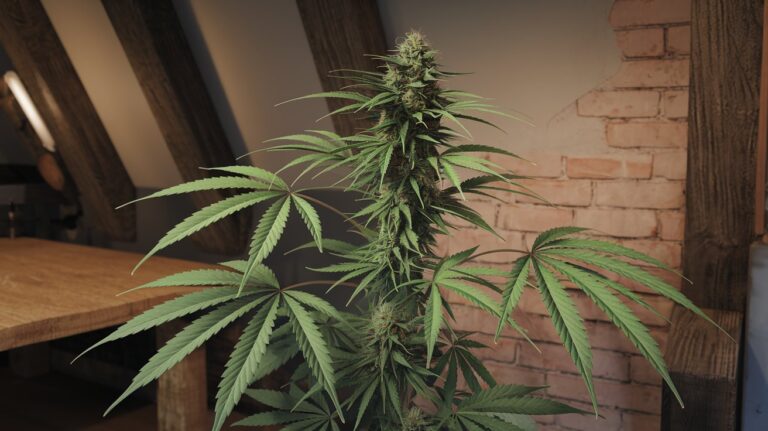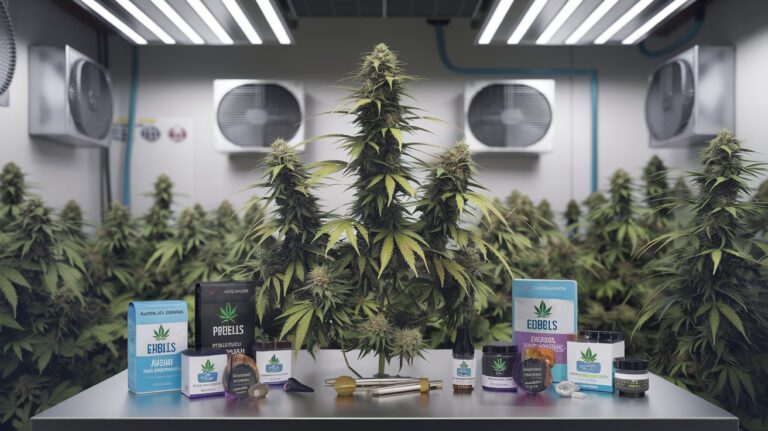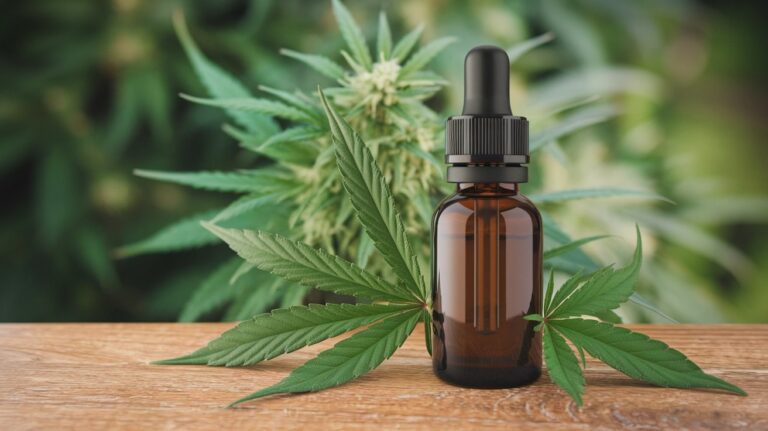What Makes Dispensary Legal: Complete US Compliance Guide 2025
A legal dispensary operates under strict state regulations, requiring proper licenses, compliance with local zoning laws, and adherence to security protocols. As of 2025, dispensaries must meet specific criteria including state licensing, tax registration, product testing requirements, and security measures to maintain their legal status across the United States.
State Licensing Requirements for Legal Dispensaries
The foundation of any legal dispensary begins with obtaining proper state licensing through rigorous application processes. Each state maintains its own cannabis control board that oversees the licensing system, with application fees ranging from $5,000 to $40,000 depending on the jurisdiction. States like California require multiple license types including cultivation, manufacturing, distribution, and retail licenses to operate legally.
Most states mandate background checks for all owners and employees, requiring disclosure of criminal history and financial records. The definition of eligible applicants varies by state, with some implementing social equity programs that prioritize minority-owned businesses and communities disproportionately affected by cannabis prohibition. These licensing requirements create a legal framework that distinguishes legitimate dispensaries from unlicensed operations.
How Legal Dispensaries Work: Operations and Compliance
Legal dispensaries operate through sophisticated tracking systems that monitor cannabis products from seed to sale, ensuring complete supply chain transparency. The METRC (Marijuana Enforcement Tracking Reporting Compliance) system is used in most states to track inventory, sales, and transfers. This technology enables real-time monitoring of product movement and helps prevent diversion to illegal markets.
These establishments must maintain detailed records of all transactions, including customer purchases, inventory levels, and waste disposal procedures. Dispensaries are required to verify customer age and eligibility through ID scanning systems and maintain purchase limits according to state regulations. Daily operations include mandatory security protocols, employee training programs, and regular inspections by state officials to ensure ongoing compliance.
Security and Safety Protocols
Legal dispensaries must implement comprehensive security measures including 24/7 video surveillance, alarm systems, and secure storage facilities. These dispensary security requirements typically mandate cameras covering all areas where cannabis is handled, stored, or sold, with footage retained for 90 days minimum. Armed or unarmed security personnel may be required depending on local regulations and crime rates in the area.
Employee Training and Certification
All dispensary employees must complete state-mandated training programs covering cannabis laws, product knowledge, and safety procedures. Many states require budtenders to obtain specific certifications before interacting with customers, ensuring they understand dosage guidelines, product effects, and contraindications. This training helps maintain the professional standards that distinguish legal operations from illicit sellers.
Medical vs Recreational Dispensary Legal Framework
The difference between medical and recreational dispensary operations lies primarily in licensing requirements, tax structures, and customer eligibility. Medical dispensaries typically face stricter regulations regarding patient verification, physician recommendations, and product potency limits. States often implement separate licensing tracks for medical and recreational facilities, with some allowing dual-licensing for businesses serving both markets.
Medical dispensaries must verify patient eligibility through state medical marijuana programs, requiring valid medical cards and physician recommendations for specific qualifying conditions. The price difference between medical and recreational products reflects varying tax structures, with medical cannabis often subject to lower taxation rates. Some states maintain separate facilities entirely, while others allow medical patients to shop at recreational dispensaries with tax exemptions.
Medical Dispensary Requirements
Medical dispensaries must maintain detailed patient records and ensure product recommendations align with physician prescriptions and state-approved conditions. These facilities often require pharmaceutical-grade storage conditions and may have stricter product testing requirements compared to recreational dispensaries. Patient privacy protections under HIPAA add additional compliance layers for medical operations.
Recreational Dispensary Standards
Recreational dispensaries focus on age verification and purchase limits rather than medical eligibility, serving customers 21 and older in most states. These dispensary operations often have more flexibility in marketing and product presentation, though they face higher tax burdens and may have stricter zoning restrictions in residential areas.
Zoning and Local Government Requirements
Local zoning laws play a crucial role in determining what makes dispensary legal within specific municipalities, even in states with legalized cannabis. Many cities and counties maintain the right to ban or restrict cannabis businesses through local ordinances, creating a complex patchwork of regulations. Dispensaries must typically locate away from schools, parks, and religious institutions, with buffer zones ranging from 500 to 1,500 feet depending on local requirements.
Local governments often require special use permits, conditional use permits, or cannabis business licenses in addition to state authorization. These legal requirements may include community notification processes, public hearings, and ongoing compliance monitoring. Some jurisdictions limit the number of dispensaries through caps or merit-based selection processes, making location and local approval critical factors in establishing legal operations.
Product Testing and Quality Control Standards
All legal dispensaries must source products from state-licensed testing laboratories that screen for pesticides, heavy metals, residual solvents, and microbials. These mandatory testing requirements ensure consumer safety and product consistency, with detailed certificates of analysis required for each batch of cannabis products. Testing protocols vary by state but typically include potency verification to ensure accurate THC and CBD labeling.
Quality control extends beyond testing to include proper packaging, labeling, and storage requirements that maintain product integrity from manufacturer to consumer. Dispensaries must verify that all products meet state packaging standards, including child-resistant containers, clear labeling of potency and ingredients, and proper warning statements about cannabis use.
Laboratory Certification Requirements
Testing laboratories serving legal dispensaries must obtain state accreditation and follow standardized testing protocols established by regulatory agencies. These labs undergo regular inspections and proficiency testing to ensure accuracy and reliability of results. The testing process creates a quality assurance system that protects consumers and maintains market integrity.
Product Recall Procedures
When products fail testing or safety standards, dispensaries must implement immediate recall procedures to remove contaminated items from shelves and notify affected customers. These recall systems demonstrate the accountability measures that distinguish legal operations from unregulated markets, protecting consumer health and maintaining regulatory compliance.
Tax Compliance and Financial Regulations
Legal cannabis dispensaries face complex tax obligations at federal, state, and local levels, with specific requirements that differ significantly from traditional retail businesses. Federal tax code 280E prohibits deducting ordinary business expenses for businesses trafficking Schedule I substances, creating unique financial challenges for dispensaries. This results in effective tax rates often exceeding 70% for cannabis businesses.
State and local tax requirements vary widely, with some states implementing excise taxes, sales taxes, and cultivation taxes that dispensaries must collect and remit. California’s cannabis tax system includes cultivation taxes of $10.75 per ounce for flower and $3.15 per ounce for leaves, plus retail excise taxes and local taxes that can total over 40% of the final purchase price.
Banking and Financial Services Compliance
Most traditional banks avoid serving cannabis dispensaries due to federal banking regulations, forcing many businesses to operate primarily in cash. However, some credit unions and state-chartered banks provide services to compliant dispensaries under strict anti-money laundering (AML) and know-your-customer (KYC) protocols. The SAFE Banking Act, if passed, would provide federal protections for financial institutions serving legal cannabis businesses.
Credit card processing remains limited for dispensaries, with most relying on cash transactions or specialized payment systems like CanPay or Hypur. These payment limitations create operational challenges but also demonstrate the banking compliance requirements that legitimate businesses must navigate while maintaining legal status.
State-by-State Legal Dispensary Landscape 2025
As of 2025, 38 states plus Washington D.C. have legalized medical cannabis, while 24 states allow recreational use, creating diverse regulatory environments for dispensaries across the country. Colorado leads in dispensary density with approximately 2.5 dispensaries per 10,000 residents, followed by Oregon and Washington. The number of dispensaries by state varies significantly based on population, licensing caps, and regulatory frameworks.
California maintains the largest cannabis market with over 1,400 licensed dispensaries, while states like Montana and North Dakota have fewer than 50 licensed facilities each. Market maturity, regulatory stability, and local acceptance influence dispensary proliferation rates, with newer legal states typically showing rapid growth in licensed facilities as markets develop and regulations stabilize.
Related video about what makes dispensary legal
This video complements the article information with a practical visual demonstration.
FAQ – Common Questions
How do legal dispensaries work?
Legal dispensaries operate under state licensing systems with comprehensive tracking from seed to sale, mandatory security protocols, employee certification requirements, and regular compliance inspections. They must source products from licensed testing laboratories and maintain detailed records of all transactions while adhering to zoning laws and tax obligations.
What is the legal definition of a dispensary?
A legal dispensary is a state-licensed retail facility authorized to sell cannabis products to qualified customers within regulatory compliance frameworks. These businesses must meet specific licensing requirements, security standards, tax obligations, and operational protocols established by state cannabis control boards and local governments.
What state has the most dispensaries per capita?
Colorado has the highest dispensary density with approximately 2.5 dispensaries per 10,000 residents as of 2025, followed by Oregon and Washington. This high density reflects Colorado’s early legalization, mature regulatory framework, and relatively permissive local zoning policies that allow dispensary operations in most municipalities.
What is the difference between medical and recreational dispensary regulations?
Medical dispensaries require patient verification through state programs and physician recommendations, often face lower tax rates, and may have stricter product potency limits. Recreational dispensaries serve customers 21+ without medical requirements but typically face higher taxes, stricter zoning restrictions, and different marketing limitations while maintaining the same basic licensing and security requirements.
Why do some dispensaries operate illegally?
Illegal dispensaries operate without proper state licensing, often to avoid tax obligations, regulatory compliance costs, or because they cannot meet licensing requirements. These unlicensed operations undermine legal businesses, pose safety risks through untested products, and face criminal penalties including fines, closure orders, and potential imprisonment for operators.
How much does it cost to make a dispensary legal?
Starting a legal dispensary requires $250,000 to $2 million in initial investment, including licensing fees ($5,000-$40,000), security systems ($20,000-$50,000), inventory ($100,000-$300,000), real estate, and operational expenses. Ongoing compliance costs include testing fees, tax obligations, and renewal fees that can reach $500,000+ annually for larger operations.
| Legal Requirement | Compliance Details | Business Benefit |
|---|---|---|
| State Licensing | $5,000-$40,000 fees, background checks, application process | Legal operation authority and market access |
| Product Testing | Mandatory lab testing for safety and potency | Consumer safety assurance and liability protection |
| Security Systems | 24/7 surveillance, alarms, secure storage | Asset protection and regulatory compliance |
| Tax Compliance | Federal 280E limitations, state and local taxes | Legal business status and community contribution |






